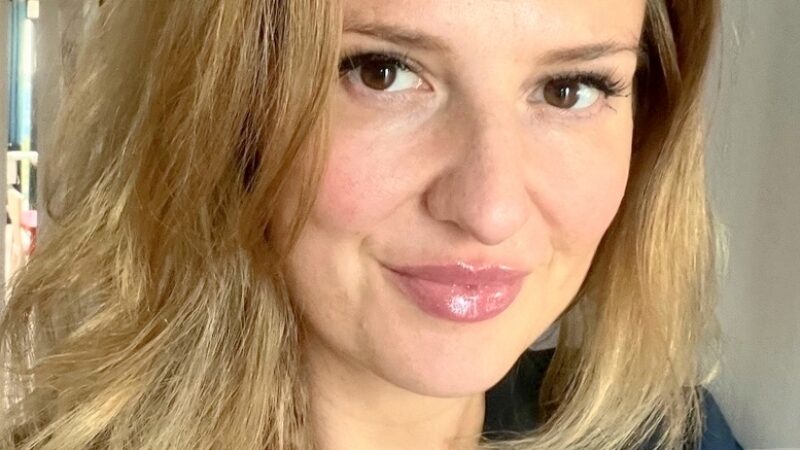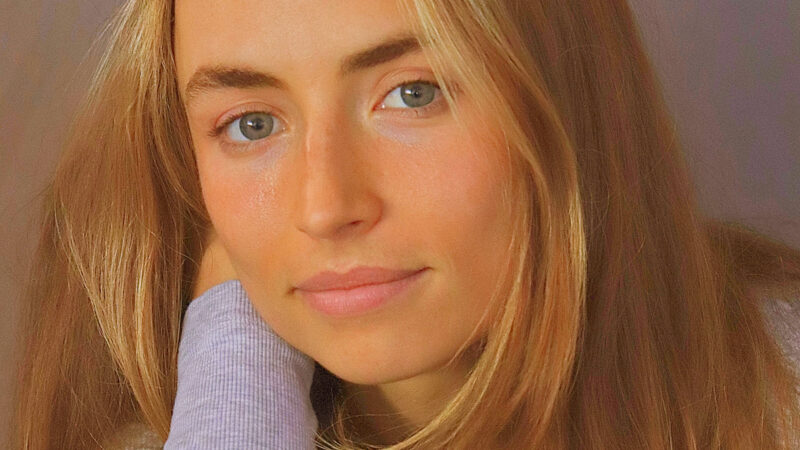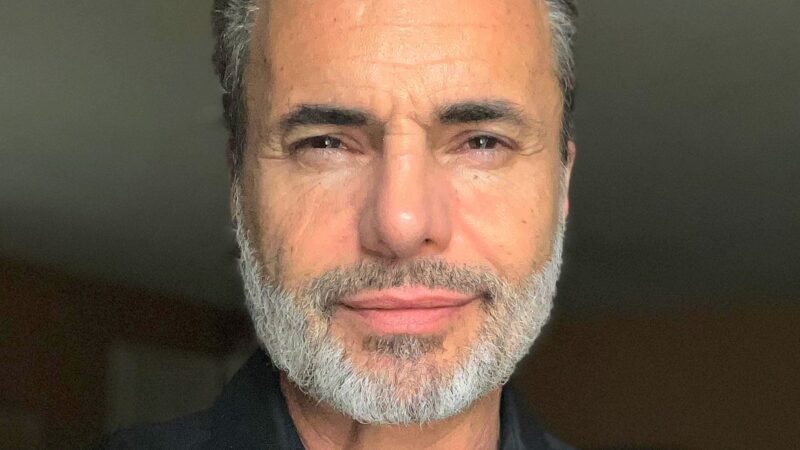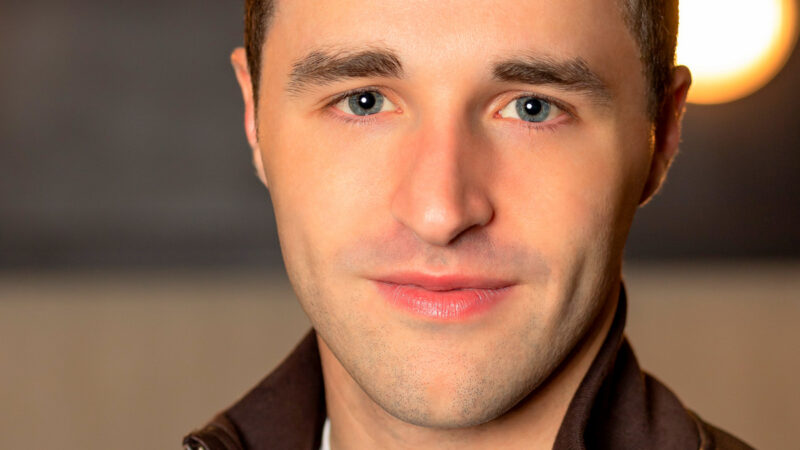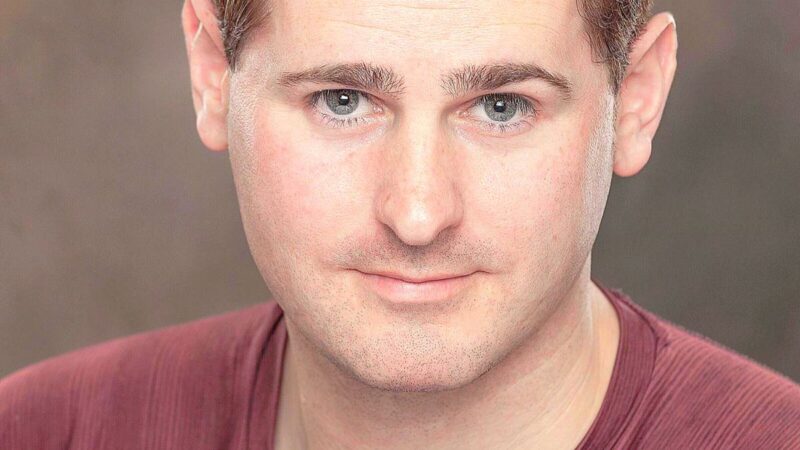
indieactivity: How did you get into directing? How would you describe your style?
Mateusz Balcerek (MB): My journey into directing started back in Poland, where I grew up surrounded by a rich culture of storytelling. Moving abroad for education and work, from London to Milan to LA, exposed me to diverse cinematic languages and helped me see how different cultures approach storytelling. I’m always interested in creating films that feel deeply personal yet have a universal appeal.
In terms of my style, I like to experiment with genre to give stories more depth and accessibility. I’m inspired by directors like Andrzej Wajda, whose work dealt with the struggles of ordinary people in extraordinary circumstances. I believe in telling stories that blend reality and imagination, like my latest short film, “Sunflower,” which is about my grandmother. It merges the real horrors of war with a child’s fantastical way of viewing the world, which I think adds layers to the story. It’s a film that’s about survival and resilience but also speaks to the power of imagination during dark times.
Do you hire a casting director, or do you cast by yourself? What criteria goes into casting?
Mateusz Balcerek (MB): I was really fortunate to work with Kacper Kowalski, a fantastic Polish casting director who’s worked on projects for Netflix. But I did have a strong vision for the cast, especially for the lead role of Danuta. I had access to family photos and archival images from that period, so I was focused on authenticity. Finding a 6/7-year-old actress was a challenge, but when Martyna Zozula came along, she just clicked. She had that emotional depth I was looking for, even at such a young age. It wasn’t just about her look; she had to carry the weight of the story, and Martyna did that effortlessly.
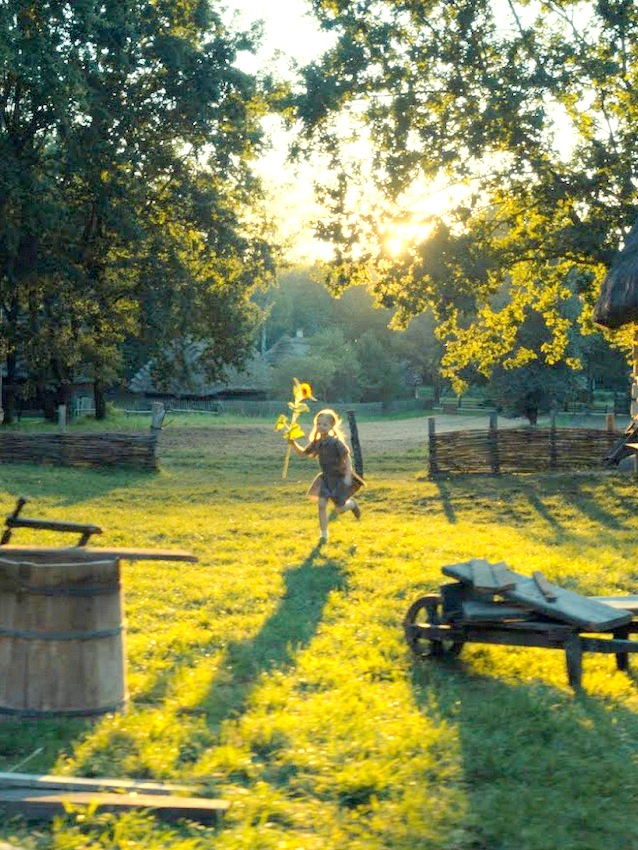
What went into the casting process for “Sunflower”?
Mateusz Balcerek (MB): For “Sunflower,” the casting process was meticulous, especially for the child roles. We wanted authenticity, and finding a young actress who could convey both innocence and resilience was key. We auditioned many children, focusing on their emotional range and how they could carry the weight of the story. Martyna Zozula, our lead, was exceptional in this regard. We also paid close attention to family dynamics, ensuring that the cast felt cohesive as a unit, representing the generational ties that are central to the film.
Without giving anything away, tell us a little bit about the script, how did you come up with the idea?
Mateusz Balcerek (MB): The idea for “Sunflower” comes from a story my grandmother used to tell us when we were kids. It was one of those family stories that stuck with me, and over the years, I realized it could be more than just a family memory—it could be a powerful visual story. Even though it’s set during WWII, I believe the themes still resonate today, especially in a world that’s still grappling with conflict and displacement. It’s about survival, resilience, and how even in the darkest times, there’s space for imagination and hope.
Who is “Sunflower” for? Who do you think would enjoy it the most?
Mateusz Balcerek (MB): “Sunflower” is for anyone who enjoys stories that blend history with a touch of fantasy. It’s not just for people interested in war films—it’s for those who appreciate human stories, especially ones told from a child’s perspective. Fans of movies like “Jojo Rabbit” or “Life is Beautiful” would really connect with the way “Sunflower” uses a child’s imagination to frame the reality of war. It’s also a story for people who are drawn to narratives about family, resilience, and hope.
How long did it take to shoot the entire film?
Mateusz Balcerek (MB): The entire process took about two years. We started with extensive script consultations and the challenge of finding the right locations. We spent months visiting different open-air museums across Poland until we found the perfect location in Radom that captured the simplicity and symbolism we needed. Once the location was locked in, the actual shoot moved quickly, and we were able to finish in just under two weeks.
How long was the post-production process?
Mateusz Balcerek (MB): Post-production took about seven months. Music was a crucial element for me because it was such an important part of life in 1944. People turned to music for comfort and hope, and I wanted the score to reflect that. Roberto Mengoli composed the music, drawing inspiration from Polish wartime songs. It was performed by the Guildhall London Symphony Orchestra and the London Music Centre Kids Choir, which added this beautiful, haunting layer to the film. The sound design was done by Formosa Group, and their work elevated the film in ways I hadn’t anticipated, adding even more depth and texture to the story.
The film had a lot of talent working behind the scenes as DPs, sound designers, composers, etc. Why is diversity important both in front of and behind the camera?
Mateusz Balcerek (MB): I’m incredibly proud of the diverse team we had on “Sunflower.” It wasn’t just about assembling talent. It was about bringing together people with different perspectives to tell a more complete story. Our DP, Łukasz Dziedzic, has worked with Janusz Kamiński and brought such a strong visual style to the film. Our production designer, Rafał Osiński, worked on major films like “Bridge of Spies,” and his attention to detail was invaluable. We also had crew members from Poland, Italy, the UK, Turkey, and the US. And that mix of experiences really enhanced the storytelling. Diversity behind the camera allows us to tell stories that feel more layered and authentic.
What are your goals with “Sunflower”?
Mateusz Balcerek (MB): I want “Sunflower” to reach as wide an audience as possible. The goal is to expand it into a feature film, blending historical drama with fantasy and musical elements. I’m really interested in diving deeper into the child’s perspective during war. How their imagination serves as both a refuge and a way to process trauma. I think there’s so much more to explore in this story. Especially in terms of how innocence and resilience coexist in times of hardship.
What’s next for you? What are you working on right now?
Mateusz Balcerek (MB): Right now, I’m developing the feature version of “Sunflower”. While also working on a few other projects that explore similar themes. How fantasy can be used to make sense of difficult, real-world experiences. I’m also looking into new opportunities in both TV and film. With a focus on bringing underrepresented stories to the forefront.
What would you recommend to a new director at the beginning of his/ her journey? Any special courses, workshops, helpful books they can read?
Mateusz Balcerek (MB): My biggest recommendation is to find your voice and stick to it. It’s easy to get caught up in trends, but authenticity is what sets you apart. In terms of resources, workshops like Sundance or Berlinale Talents are great for meeting like-minded filmmakers. For reading, “In the Blink of an Eye” by Walter Murch is excellent for understanding the power of editing. “On Directing Film” by David Mamet gives great insights into the craft of storytelling.
Who is your favorite director? Why?
Mateusz Balcerek (MB): I’ve always admired Tim Burton. He has this incredible ability to create entire worlds. These worlds are whimsical, dark, and emotionally profound all at the same time. His visual style is instantly recognizable, and I love how he brings out deep emotions through such unique, fantastical narratives.
What advice would you give directors around the world?
Mateusz Balcerek (MB): Stay curious and keep learning. The world is full of stories waiting to be told. It’s your job to find the ones that resonate with you. Collaborate with people who inspire you and challenge you. And remember, filmmaking is a team effort. Surround yourself with people who share your vision but also bring their own perspectives to the table.
Tell us what you think of the interview with Mateusz Balcerek. What do you think of it? What ideas did you get? Do you have any suggestions? Or did it help you? Let’s have your comments below and/or on Facebook, Instagram, or Twitter.
Socials
Website
IMDb
Facebook
LinkedIn
Instagram
FILMMAKER INTERVIEWS

